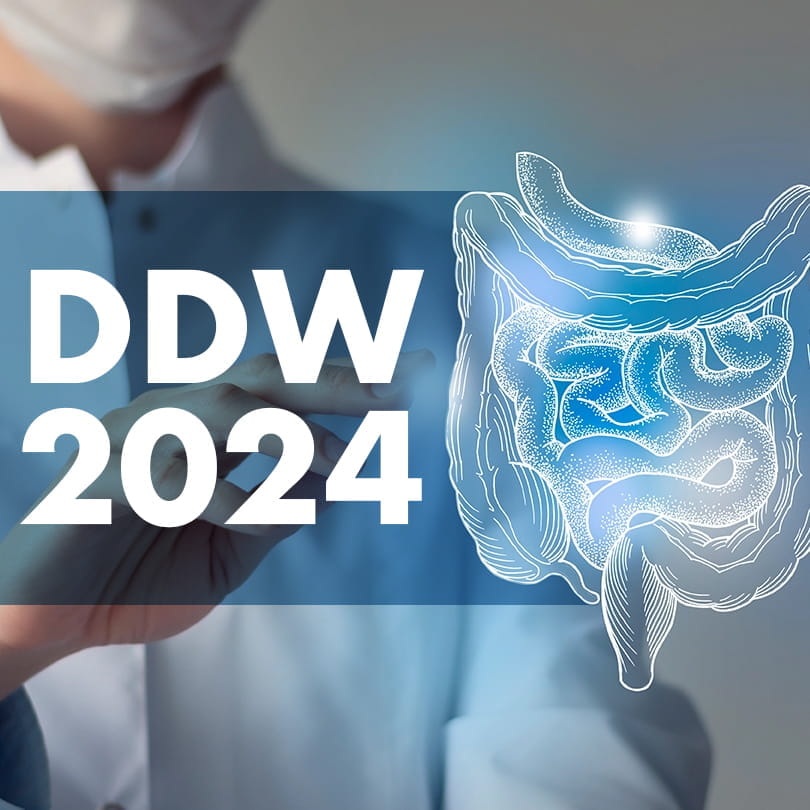DDW 2024: Biologics and JAK Inhibitors Decrease Major Cardiovascular Events (MACE) in IBD Patients
Inflammatory bowel disease (IBD) involves a complex interplay of gut microbiome dysbiosis and immune dysfunction, characterized by chronic inflammation marked by elevated interleukin-1 alpha and TNF-alpha levels, which contribute to endothelial dysfunction and a hypercoagulable state similar to atherosclerosis. Alongside traditional cardiovascular disease (CVD) risk factors, non-traditional factors such as younger age at diagnosis, female gender, and active disease status significantly elevate cardiovascular risk in IBD patients. Studies, including large retrospective analyses and investigations in veteran populations, confirm increased risks of acute myocardial infarction and other coronary syndromes independent of traditional risk factors. During active disease flares, there is a notable rise in relative risks of MI, ischemic stroke, and cardiovascular mortality. Controlling inflammation appears pivotal in mitigating cardiovascular risk. Yet, some IBD treatments, like tofacitinib, a non-selective JAK inhibitor, pose additional cardiovascular risks, as evidenced by studies like the Oral Surveillance Study in rheumatoid arthritis. These findings underscore the dual challenge of managing inflammation effectively while navigating potential medication-related cardiovascular risks in optimizing cardiovascular outcomes for IBD patients.
The speaker stated that their study assessed cardiovascular event incidence in patients with IBD across various IBD therapies using the Trinetics database. Data from our IBD cohort, defined by ICD-10 codes for ulcerative colitis or Crohn's disease and prescription of IBD medications, were analyzed by biostatisticians at the University of Wisconsin in Milwaukee using Python programming. We focused on anti-TNF medications, anti-integrin medications, IL-12/23 inhibitors, and small molecules, including tofacitinib and upadacitinib, and excluded ozanimod due to limited numbers. The study period spanned from January 2015 to November 2023, excluding patients with hereditary high cholesterol, other chronic inflammatory conditions, or malignancies. Primary outcomes included nonfatal MI, nonfatal ischemic stroke, and cardiac revascularization (coronary stenting or bypass surgery), collectively termed composite MACE due to challenges in defining cardiovascular mortality in the database. The study aimed to clarify cardiovascular risks associated with these therapies in IBD patients, building on prior research and addressing gaps in understanding through rigorous analysis and clinical interpretation. They focused on assessing cardiovascular event incidence among IBD patients treated with various therapies. They employed logistic regression to adjust for age, sex, cardiovascular risk factors, prior coronary artery disease, and medication use.
The cohort, comprising over 113,000 IBD patients, predominantly Caucasian and with a mean age of 43 years, showed a low baseline cardiovascular risk profile. Notably, TNF inhibitors demonstrated a statistically significant decreased risk of myocardial infarction, ischemic stroke, need for coronary intervention, and composite major adverse cardiovascular events (MACE), even after adjustments. Anti-integrin and IL-12/23 inhibitors also exhibited decreased risks in composite MACE. Importantly, JAK inhibitors, primarily tofacitinib, did not show a statistically significant increased risk of MACE in younger patients with low cardiovascular risk. Strengths of our study include nationwide data collection and a large cohort size, but limitations such as retrospective design and inability to assess disease activity at diagnosis or medication timelines were acknowledged. Moving forward, prospective studies are needed to explore further the impact of IBD therapies on cardiovascular outcomes, particularly in higher-risk patient populations and with emerging medications like S1P modulators.
The first question pertains to the potential timing of the FDA removing the label warning that mandates TNF inhibitors as the initial treatment option. Although speculative, recent data, including this study's findings and those from oral surveillance, suggest diminishing concerns regarding cardiovascular risks associated with TNF inhibitors. Secondly, regarding IBD disease activity, while Trinetics did not assess this directly, our introduction highlighted the plausible link between reducing systemic inflammation and lower risks of venous thromboembolism (VTE) and MACE. Although hospitalization rates were not examined in our study as a surrogate marker for disease activity, their established utility in distinguishing active from stable disease in IBD populations underscores their relevance for future investigations.
Digestive Disease Week (DDW) 2024, May 18-21, 2024, Washington, D.C.




